Fighting through
opioid
withdrawal
Opioid withdrawal can be the biggest challenge for someone being treated for addiction, and can often lead to relapse.
Dealing with withdrawal is an uncomfortable process, but it is important to remember that the symptoms are only temporary and there are ways that the process can be made easier.2
1. Medical
supervision
Attempting to stop using opioids without treatment is rarely possible. Therefore, people who are suffering from opioid addiction usually need medical treatment to help them slowly wean off of opioids and allow their body to readjust.

2. Have support
in place
Support from family, friends, medical staff, or a peer support group can be essential for anyone going through opioid withdrawal.

3. Keep a healthy
routine
Fighting through opioid withdrawals is tough, so it is important that the body is kept as healthy as possible. For example, exercise can help reduce the stress and anxiety of the withdrawal process, while getting enough sleep allows the body to rest and recharge for the next day.
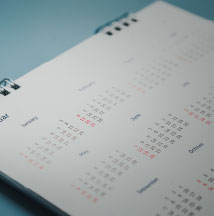
Avoiding
triggers
The journey of recovery from opioid addiction involves many different challenges, and the toughest of these can be trying to prevent a relapse.
Therefore, a crucial part of the recovery journey is understanding and avoiding ‘triggers’. These can be any situation, emotion, or other cue that causes cravings and increases the risk of taking opioids again.3
How triggers work and
why avoidance matters
Triggers work by creating associations in the brain between certain stimuli and opioid use. Over time, encountering these triggers can lead to intense cravings and jeopardise the recovery progress.4,5
Avoiding triggers is vital because it helps break the link between environmental cues and the desire to use opioids, reducing the risk of relapse.3,5
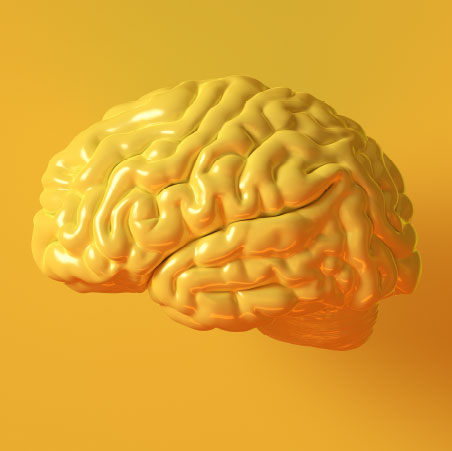
Common triggers
in opioid
addiction
Opioid relapse triggers vary for each individual and fall into two categories: External and Internal:4
EXTERNAL TRIGGERS
include places, people,
and activities associated
with opioid use.
INTERNAL TRIGGERS
involve emotions that
cause a desire
for opioids.
Tips for avoiding
common triggers6
1. Stress:
2. Difficult emotions:
3. Mental or physical illness:
4. Isolation:
5. Relationship problems:
6. Celebrations:
7. Environments with drug availability:
8. Memories:
1. Stress:
Learn stress-reduction techniques from a therapist to better handle work, family, or relationship stress.

2. Difficult emotions:
Develop coping strategies in therapy to deal with negative emotions like guilt, sadness, or anger.

3. Mental or physical illness:
Seek treatment for illnesses, allowing for a more focused recovery from opioid addiction.

4. Isolation:
Build a support network, including friends or sponsors, to prevent isolation.

5. Relationship problems:
Seek support for relationship challenges and focus on self-improvement during early recovery.

6. Celebrations:
Plan sober celebrations for achievements to avoid the temptation of using opioids.

7. Environments with drug availability:
Identify and avoid places or people associated with opioid use.

8. Memories:
Discuss feelings about past opioid use with a sponsor, therapist, or loved one to reinforce the importance of staying on the recovery path.

Creating a list of personal triggers and working
out how to avoid or reduce their impact is a very
effective way to improve the chances of a
successful recovery journey.
Mental health
support
Dealing with opioid addiction often comes with mental health challenges that can affect people in different ways.1 Increased prescription opioid use, for example, has been linked to conditions such as depression and anxiety.7,8
WHAT IS DEPRESSION?
Depression is an intense feeling of sadness and a loss of interest in the things that used to be enjoyed.7
Dealing with opioid addiction often comes with mental health challenges that can affect people in different ways.1 Increased prescription opioid use, for example, has been linked to conditions such as depression and anxiety.7,8
WHAT IS ANXIETY?
Anxiety is an intense feeling of fear and panic, usually when the actual threat isn’t that big.7
Some people may experience what is known as a dual diagnosis, where serious mental health issues exist together with the addiction.9 It could be that the mental ill-health led to opioid misuse, or an opioid addiction led to mental ill-health, or the two are unrelated.
Managing a
dual diagnosis
A dual diagnosis can make the journey towards recovery more complicated if not managed properly.9
It is therefore recommended that a mental health service will take care of mental health treatment rather than a drug treatment service. They can also give referrals for other support like housing, benefits, or employment help if needed.
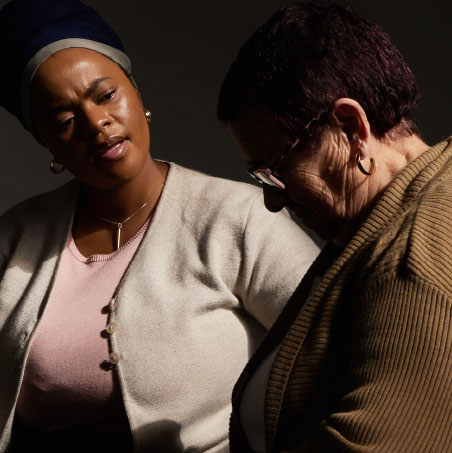
Getting support for
mental health
If opioid drug use is affecting mental health, the GP or local NHS drug treatment service will be able to offer the right kind of support.9
Medication is usually not used to treat mental health problems that are being caused by opioid use, but talking therapies such as cognitive behavioural therapy (CBT) are sometimes offered.9
However, if the mental health problem existed before the history of opioid use, medication may be used to treat it.9
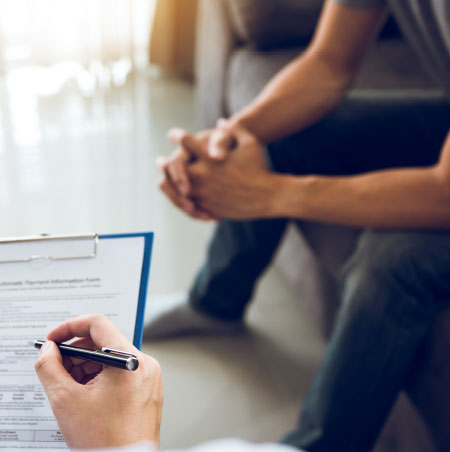
AS WELL AS THE GP AND DRUG TREATMENT SERVICES, OTHER SOURCES OF MENTAL HEALTH SUPPORT INCLUDE:
1. Mental Health Services:
2. NHS 111:
3. Mind:
1. Mental Health Services:
NHS mental health services can be accessed through the GP and sometimes through a pharmacist10

2. NHS 111:
Dialing 111
or visiting 111 online …allows individuals to access immediate advice or help with a mental health problem11

3. Mind:
This registered charity offers free mental health information, advice and support.12 Visit Mind

Welfare
support
Living with opioid addiction can have a profound impact on every aspect of one’s life, but support is available to ease the burden for individuals and their families. The first step towards accessing support is understanding your eligibility for government benefits.
The Turn2us Benefits Calculator is a valuable resource that helps individuals assess the benefits they may be entitled to based on their specific circumstances.13
Use the turn2us benefits calculator
This tool takes into account
various factors, including income,
housing costs, and health
conditions, providing a
comprehensive overview of the
support available.
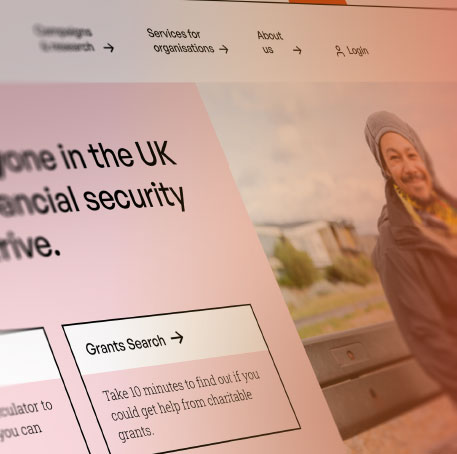
Universal Credit: A holistic approach
Support with council tax
Help with energy bills
Universal Credit: A holistic approach
Universal Credit is a comprehensive system that combines several benefits into one monthly payment, offering support for living costs, housing, and children if applicable.
Applying for Universal Credit is a simple process that can ensure a more holistic approach to supporting financial needs during recovery.14

Support with council tax
The Citizens Advice website provides a helpful guide on how to check eligibility for reduced council tax. Exploring these options can reduce some of the financial pressure, allowing individuals to focus on their recovery journey.15

Help with energy bills
Energy bills can be another source of financial concern and Citizens Advice provides information on grants and benefits that can help. This support will make sure that essential services remain intact, promoting a stable and supportive environment during the recovery process.16

References
- Gillen, J. (2022). 6 Ways To Keep Up With Drug Addiction Treatment. [online] Ocean Recovery Centre. Available at: https://oceanrecoverycentre.com/2022/02/6-ways-to-keep-up-with-drug-addiction-treatment/ [Accessed July 2024].
- Pinelands Recovery Center of Medford. (2019). Tips on Fighting Through Opioid Withdrawals - Pinelands. [online] Available at: https://www.pinelandsrecovery.com/tips-on-fighting-through-opioid-withdrawals/ [Accessed July 2024].
- Stoke-on-Trent Community Drug and Alcohol Services. (n.d.). Triggers: how to avoid them. [online] Available at: https://www.scdas.org.uk/need-help/stay-on-track/triggers-how-to-avoid-them-2/ [Accessed July 2024].
- MacKey, B. (2023). How To Be Social and Avoid Triggers - Rehab 4 Addiction. [online] www.rehab4addiction.co.uk. Available at: https://www.rehab4addiction.co.uk/blog/how-social-avoid-triggers [Accessed July 2024].
- Asensio, S., Hernández-Rabaza, V. and Orón Semper, J.V. (2020). What Is the ‘Trigger’ of Addiction?. Frontiers in Behavioral Neuroscience, [online] 14. doi:https://doi.org/10.3389/fnbeh.2020.00054.
- Casarella, J. (2022). What Causes Opioid Use Disorder Relapses? [online] WebMD. Available at: https://www.webmd.com/mental-health/addiction/opioid-use-disorder-relapse [Accessed July 2024].
- Southern California Sunrise Recovery Center. (2020). Mental health and opioid addiction. [online] Available at: https://socalsunrise.com/mental-health-opioid-addiction/ [Accessed July 2024].
- Rosoff, D.B., Smith, G.D. and Lohoff, F.W. (2021). Prescription Opioid Use and Risk for Major Depressive Disorder and Anxiety and Stress-Related Disorders. JAMA Psychiatry, 78(2), p.151. doi:https://doi.org/10.1001/jamapsychiatry.2020.3554.
- Mental Health Foundation (2021). Drugs and Mental Health. [online] www.mentalhealth.org.uk. Available at: https://www.mentalhealth.org.uk/explore-mental-health/a-z-topics/drugs-and-mental-health [Accessed July 2024].
- NHS (2021). How to find local mental health services. [online] nhs.uk. Available at: https://www.nhs.uk/nhs-services/mental-health-services/how-to-find-local-mental-health-services/ [Accessed July 2024].
- NHS (2019). NHS 111 online. [online] 111.nhs.uk. Available at: https://111.nhs.uk/ [Accessed July 2024].
- Mind (2019). Home | Mind, the mental health charity - help for mental health problems. [online] Mind.org.uk. Available at: https://www.mind.org.uk [Accessed July 2024].
- Turn2Us.org.uk. (n.d.). Turn2us Benefits Calculator. [online] Available at: https://benefits-calculator.turn2us.org.uk/ [Accessed July 2024].
- nidirect (2019). Universal Credit. [online] nidirect. Available at: https://www.nidirect.gov.uk/campaigns/universal-credit [Accessed July 2024].
- Citizens Advice (n.d.). Check if you can pay less council tax. [online] Available at: https://www.citizensadvice.org.uk/housing/council-tax/check-if-you-can-pay-less-council-tax/ [Accessed July 2024].
- Citizens Advice (n.d.). Grants and benefits to help you pay your energy bills. [online] Available at: https://www.citizensadvice.org.uk/consumer/energy/energy-supply/get-help-paying-your-bills/grants-and-benefits-to-help-you-pay-your-energy-bills/ [Accessed July 2024].

